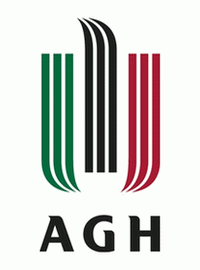The origins of the Faculty date back to 1919, when the Mining Academy was founded, within which the Department of Physics was established. It had undergone several organizational transformations, until in 1991, the AGH UST Senate decided to form the Faculty of Physics and Nuclear Technology. In 2004, the name was changed to the Faculty of Physics and Applied Computer Science, according to the changes in the fields of research and educational activity.
Computer
A computer is a device that can be instructed to carry out sequences of arithmetic or logical operations automatically via computer programming. Modern computers have the ability to follow generalized sets of operations, called programs. These programs enable computers to perform an extremely wide range of tasks.
Computer Science
Computer science is the study of the theory, experimentation, and engineering that form the basis for the design and use of computers. It is the scientific and practical approach to computation and its applications and the systematic study of the feasibility, structure, expression, and mechanization of the methodical procedures (or algorithms) that underlie the acquisition, representation, processing, storage, communication of, and access to, information. An alternate, more succinct definition of computer science is the study of automating algorithmic processes that scale. A computer scientist specializes in the theory of computation and the design of computational systems. See glossary of computer science.
Faculty
Faculty may refer to:
Physics
Physics (from Ancient Greek: φυσική (ἐπιστήμη), translit. physikḗ (epistḗmē), lit. 'knowledge of nature', from φύσις phýsis "nature") is the natural science that studies matter and its motion and behavior through space and time and that studies the related entities of energy and force. Physics is one of the most fundamental scientific disciplines, and its main goal is to understand how the universe behaves.
Science
Science (from Latin scientia, meaning "knowledge") is a systematic enterprise that builds and organizes knowledge in the form of testable explanations and predictions about the universe.
Physics
As soon as we venture on the paths of the physicist, we learn to weigh and measure, to deal with time and space and mass and their related concepts, and to find more and more our knowledge expressed and our needs satisfied through the concept of number, as in the dreams of Plato and Pythagoras.
D'Arcy Wentworth Thompson, On Growth and Form (1917)
Physics
Theoretical physicists live in a classical world, looking out into a quantum-mechanical world. The latter we describe only subjectively, in terms of procedures and results in our classical domain.
John Stewart Bell "Introduction to the hidden-variable question" (1971), included in Speakable and Unspeakable in Quantum Mechanics (1987), p. 29
Physics
Physics is to be regarded not so much as the study of something a priori given, but rather as the development of methods of ordering and surveying human experience. In this respect our task must be to account for such experience in a manner independent of individual subjective judgement and therefor objective in the sense that it can be unambiguously communicated in ordinary human language.
Niels Bohr, "The Unity of Human Knowledge" (October 1960)

